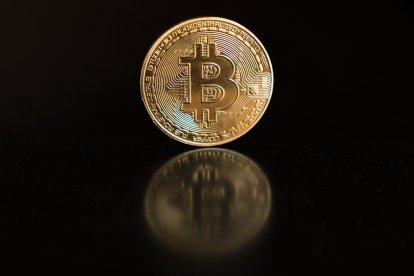'Bitcoin Beach' in El Salvador: A fading dream?
El Zonte, described as a surfer's paradise, became a symbol of Bukele's ambitious bid to integrate cryptocurrency into the Salvadoran economy. However, the enthusiasm seems to be fading under the weight of economic realities and international pressure.

Bitcoin
In 2021, El Salvador captured the world's attention by becoming the first country to adopt Bitcoin as legal tender, a bold move led by President Nayib Bukele, who proclaimed himself "the world's coolest dictator." This experiment transformed El Zonte, a small coastal town with just 3,000 inhabitants known as "Bitcoin Beach," into an epicenter of crypto-enthusiasm. However, a recent report from The Telegraph suggests that the Bitcoin "bubble" in this corner of the country may have burst.
El Zonte, described as a surfer's paradise, became a symbol of Bukele's ambitious bid to integrate cryptocurrency into the Salvadoran economy. Bitcoin adoption promised to include the unbanked masses in the financial system and attract foreign investment. For a time, the excitement was palpable: tourists and cryptocurrency enthusiasts were flocking to town, eager to participate in what seemed like a financial revolution. However, that initial enthusiasm has waned.

Economy
Trump Media Group to raise $2.5 billion in capital for cryptocurrency reserves
Virginia Martínez

Speaking to the British media outlet, a local trader expressed that from a tourism perspective, he no longer feels the same excitement he felt previously.
The turning point was the $1.4 billion deal signed by Bukele with the International Monetary Fund (IMF), an institution traditionally viewed with suspicion by Bitcoin advocates. As part of this agreement, Salvadoran merchants are no longer obliged to accept Bitcoin as a form of payment, and the government committed, at least on paper, to stop buying the cryptocurrency with public funds. Although Bukele has stated that the Bitcoin accumulation strategy will not stop, El Salvador currently owns more than 6,000 units of this cryptocurrency, reflecting a profit of more than $357 million, according to other reports.
A fading dream or a pause in the evolution of Bitcoin in El Salvador?
The Telegraph article also highlights the story of Ronny Avendaño, a Salvadoran-born Canadian who left his job in finance in Toronto to travel around Latin America, arriving in El Zonte in March 2021, where he owns the Bitcoin Hardware Store. His decision, motivated in part by Canada's vaccination policies, led him to dive into Bitcoin fever in this coastal town. However, even he recognizes a change in the environment: the initial effervescence has given way to a more cautious atmosphere.
The first @Bitcoinbeach of the world. #Bitcoin ☀️😎🤙🏻
— Gobierno de El Salvador 🇸🇻 (@Gobierno_SV) November 20, 2021
📍 El Zonte, La Libertad. 🇸🇻 pic.twitter.com/09tePrFsEU
Despite the challenges, the legacy of "Bitcoin Beach" has not completely disappeared. El Zonte remains a place where cryptocurrency is used in everyday transactions, and Bukele's vision of positioning El Salvador as a hub for financial innovation still resonates in some quarters. However, the report raises a crucial question: is this the end of the Bitcoin dream in El Salvador, or simply a pause in its evolution? Only time will tell, but for now, the glow of "Bitcoin Beach" seems to be fading under the weight of economic realities and international pressure.

























